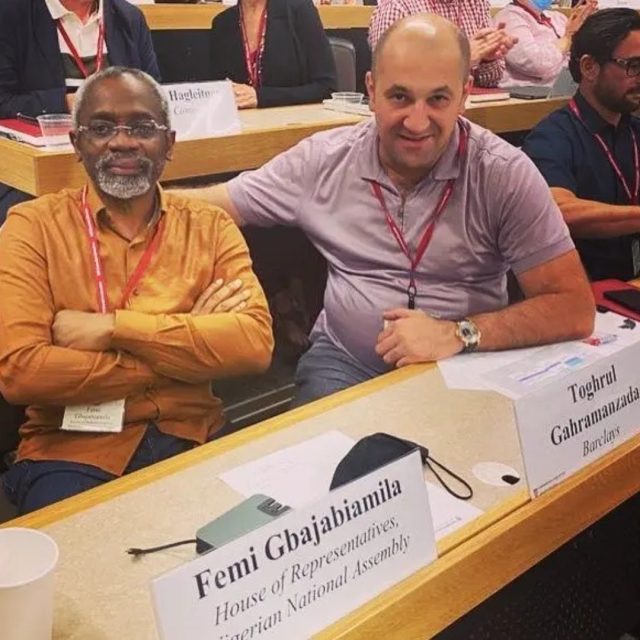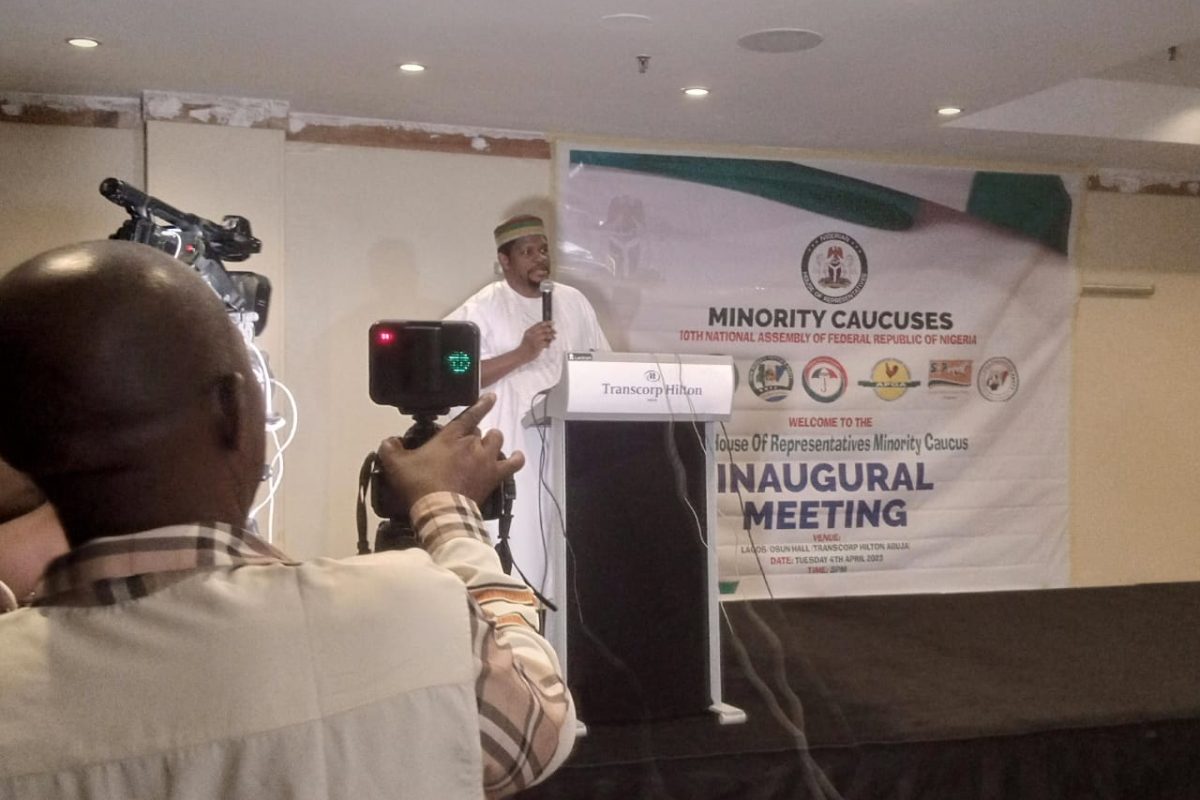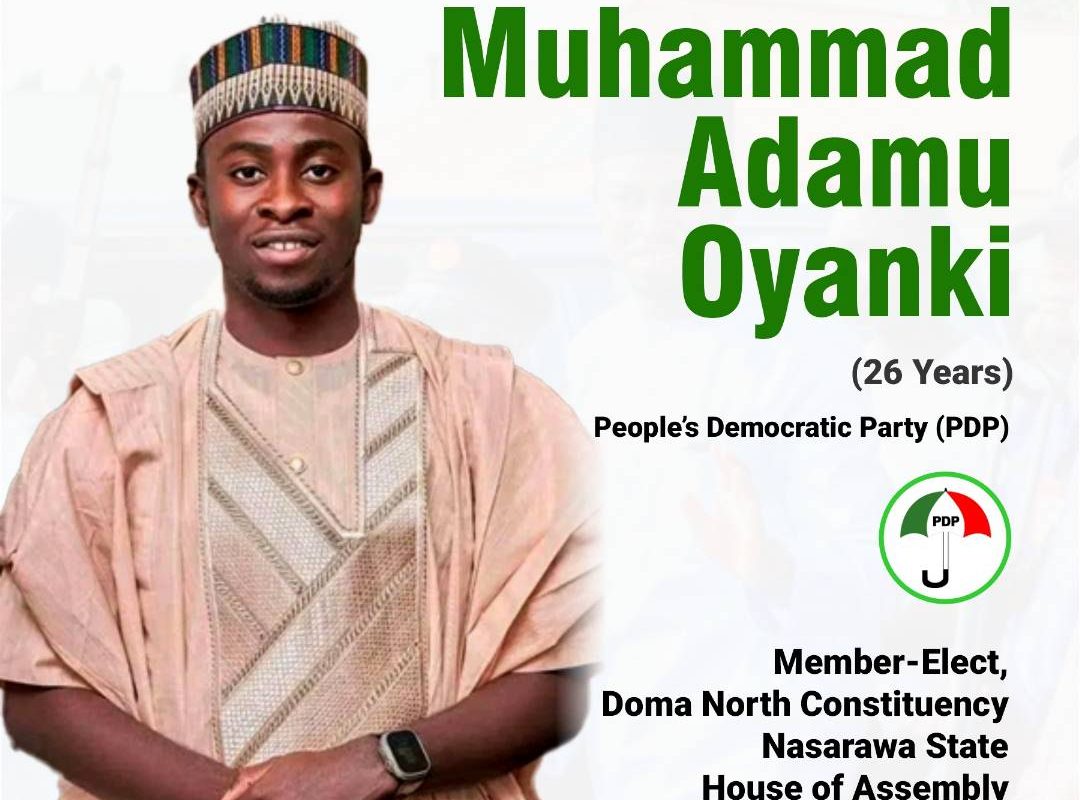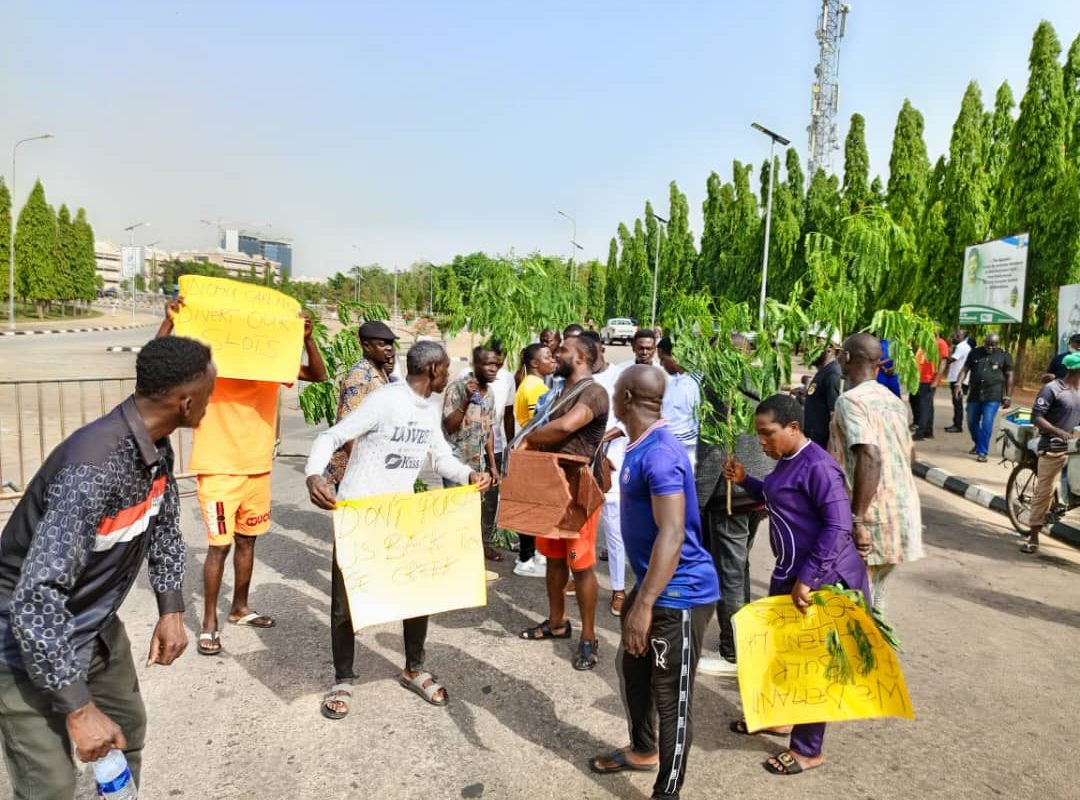As the 2022 Legislative Year winds down, we commence a review of major trends and developments which took place at the National Assembly and/or shaped the activities of parliament in the period under review (January – December 2022).

Given that the federal parliament made up of representatives from diverse backgrounds, creeds, cultures, and principles can pass for a mini-Nigeria; some of these developments could be negative, while others are largely positive.
This review also considers the many stormy plenary and committee-level sessions that can not be forgotten soon. A peep into some of the trends to be highlighted in this review includes Major Bills assented to by the President in 2022, those passed or yet to be passed by the Assembly, and Major scandals involving lawmakers, amongst others.
We commence the series with the Major controversies that rocked the National Assembly in the outgoing legislative year.
- Section 84 (12) of the Electoral Act 2022
Both chambers of the National Assembly passed a harmonised version of Section 84 (12) amendment, which included the direct, indirect, and consensus modes of primary elections.
Section 84 (12) of the Act states that “no political appointee at any level shall be a voting delegate or be voted for at the convention or congress of any political party for the purpose of the nomination of candidates for any election.” However, such an individual can only qualify to run as a candidate if he/she resigns before the party’s primaries which ought to hold at least 180 days (i.e. six months) before the date appointed for a general election, according to Section 29(1) of the Electoral Act 2022.
On 25th February 2022, at a brief ceremony to herald the President’s assent to the Electoral Act (Amendment) Bill, he called on the National Assembly to delete the controversial section from the law book stressing that “the provision constitutes a fundamental defect, and is in conflict with extant constitutional provisions.
At a plenary held on May 9, 2022, the Senate, however, threw out the President’s request. Following a heated debate among lawmakers, the Senate President, Ahmad Lawan, put it to a voice vote;; with the majority of lawmakers kicking against it. That would not be the end of the drama around the controversial provision, though.
2. Lawmakers bar President, NASS members from being delegates at primaries
Following its decision not to review Section 84 (12), the National Assembly was said to have bruised the ego of the presidency, including the Attorney-General of the Federation (AGF), rumoured to have been seriously interested in becoming the Kebbi governorship candidate of the All Progressives Congress (APC) in 2023.
The lawmakers, however, committed what the Deputy President of the Senate described as “an unintended error” which had far-reaching implications including a denial of all political parties’ statutory delegates from participating in congresses and conventions. Section 84 (8) of the Electoral Act earlier passed by the lawmakers provided for the participation of only elected delegates in the conventions, congresses or meetings of political parties held to nominate candidates of political parties.
The extant section did not provide for the participation of statutory delegates, mainly members of the party elected to government and National Working Committees (NWC) of political parties in the conventions, congresses or meetings of political parties. Realising the gross effect such an error could have on their ambitions, both chambers of the Assembly convened an emergency plenary eight days before the parties’ official commencement of the primaries.
They carried out an expeditious consideration of another Electoral Amendment bill, which scaled first, second and third readings and was passed during plenary after consideration by the Committee of the Whole on the same day. Although this did not deter the President who declined assent to the amendment passed by the Assembly. The ensuing development saw the loss of over 178 serving members of the House and dozens of Senators at the respective primaries of their parties.
3. Unending Court Battles on the Electoral Act
The controversies surrounding the Electoral Act would eventually shift to the courts, setting the polity up with legal fireworks.
The opposition People’s Democratic Party filed an ex-parte motion against the federal government at the Federal High Court in Abuja, seeking to stop attempts to tamper with the Act. Defendants in the suit were President Buhari and the AGF, the President of the Senate, the Speaker of the House of Representatives, and the Clerk of the National Assembly, among others.
A judgement from the Federal High Court in Umuahia later ruled the subsection unconstitutional and ordered the AGF to delete it from the Statute book. However, the Court of Appeal on May 11 vacated the earlier judgement, ruling that the High Court acted without jurisdiction.
Not satisfied with the judgment, President Buhari and AGF Malami filed a suit at the Supreme Court, seeking an interpretation of Section 84(12) of the Electoral Amendment Act 2022. However, the apex court on May 26 reserved judgment in the suit.
4. Impeachment threat on President Buhari
Shortly before embarking on a seven-week annual recess on 27 July 2022, some members of the Senate (majorly opposition lawmakers) had vowed to commence an impeachment process against President Muhammadu Buhari over his failure to curb the worsening spate of insecurity in the country.
At the plenary on the said day, the Senate Minority Leader, Phillip Aduda, had moved a point of order seeking to discuss insecurity on the floor of the Senate but was ruled out of order by the President of the Senate. Aduda subsequently led his colleagues to the Senate Press Centre, where he told journalists that President Buhari would be shown the way out if he failed to tackle insecurity within the next six weeks.
On resumption of the National Assembly, Nigerians waited in vain to see what the lawmakers’ reaction would be. Interestingly, the issue was not even brought up by the lawmakers.
READ ALSO: NDDC Nomination: Lauretta Onochie and the ‘Confirmation Controversy’ | Throwback Thursday
5. Constitutional Amendment: Rejection of Gender-related Bills
Following the rejection of five gender-related bills by the federal lawmakers during a clause-by-clause voting on sixty-eight Constitutional Alteration Bills, women groups occupied the National Assembly Complex protesting for nearly two weeks.
The women who gathered daily at the National Assembly gate from March 2 – March 22 demanded that the federal lawmakers rescind their decision on three of the five bills. The gender-related bills include one seeking to provide Special Seats for women at the National and State Assemblies, Bill granting citizenship to foreign-born husbands of Nigerian women, and Bill empowering a woman to possess the right to become indigenes of their husband’s state after five years of marriage.
Others are: The bill seeking 35 per cent of appointive positions for women and reserving 20 per cent affirmative action in party administration. On one of the occasions, the Majority Leader had assured the women that the House was working on their demands and appealed that the House would, within nine working days, conclude work on the matter.
With the possibility of the Ninth National Assembly delivering on the Constitutional Amendment now slim., the last one cans say is yet to be heard on the matter.
6. ASUU Strike: Nigerians slam Gbajabiamila over ‘Havard tweet’
In July 2022, Speaker of the House of Representatives, Femi Gbajabiamila shared photos of himself in a classroom at Havard Kennedy School of Government in the United States, on the same day the Nigeria Labour Congress (NLC) commenced protests across the nation in solidarity with the striking university lecturers.
Young Nigerians and their parents would not find the action as thoughtful, and the number four citizen came under heavy criticism for what was largely described as “grossly insensitive.” Much later, in a series of tweets via his verified Twitter handle, Gbajabiamila apologised for his action.
He noted that the post was not sensitive to the present feelings of fellow citizens, especially parents and students who are presently bearing the brunt of the ongoing closure of public universities owing to the unresolved issues between the Academic Staff Union of Universities and the Federal Government of Nigeria. He further craved the understanding of Nigerians that the post was not aimed at causing disaffection.
The Lagos lawmaker cited multiple interventions he had made as Speaker of the Green Chamber, within the legislature’s powers to avert the ongoing strike.
7. The Lauretta Onochie Screening Controversy
In July 2021, the President nominated his Presidential New Media Aide, Lauretta Onochie as a National Commissioner (representing the South-South) of the Independent National Electoral Commission (INEC) alongside three others.
She would, however, be dropped following public outrage over her nomination by eminent lawyers, over seventy Civil Society Organisations (CSOs), the opposition parties and other Nigerians. A wide range of Nigerians wrote petitions, staged protests and called on the Senate to reject her nomination, which they described as unconstitutional given her obvious partisan leaning – to the point that evidence was provided showing her name appears as number two on the register of the All Progressives Congress (APC) in Ward 4, Aniocha Local Government Area of Delta State.
On July 13 2021, after months of vehement opposition (including a court suit) to her nomination, the Senate eventually rejected her unanimously. The Committee however, told the Senate that she had to be disqualified based on federal character principles, adding that there is currently a serving commissioner from Delta State, where she hails from.
The Senators were, however, lauded for bowing to outrage in rejecting her nomination – despite their disagreement that it wasn’t due to the pressure from Nigerians that she had in the past demonstrated a lack of integrity to be trusted with such a sensitive position.
8. REC Nominees and protest against their screening
Barely a month after the controversies surrounding the nomination of Lauretta Onochie, President Muhammadu Buhari sent to the National Assembly, the names of nineteen nominees as Resident Electoral Commissioners (RECs) for the Independent National Electoral Commission (INEC).
Of the nineteen nominated RECs, fourteen were new appointments following the expiration of the tenure of the outgone RECs, while five were nominees for reappointment. Similar to the Lauretta Onochie case, Civil Society Organisations (CSOs) again kicked against their nomination over allegations that some of the nominees failed the constitutional test of non-partisanship and unquestionable integrity. They contended that their nomination as RECs would significantly undermine the neutrality and impartiality of INEC and increase mistrust in INEC and Nigeria’s electoral process.
The CSOs cited Prof. Muhammad Lawal Bashir from Sokoto as being a 2015 APC Governorship aspirant, while Sylvia Uchenna Agu, the nominee for Enugu State, is believed to be the younger sister of the APC Deputy National Chairman, South East. The nominee for Imo State, Pauline Onyeka Ugochi, a former Head of ICT at INEC in Imo state, gained notoriety for alleged corruption and connivance with politicians to undermine elections. Queen Elizabeth Agwu, a former Accountant-General of the Ebonyi, was suspended allegedly for incompetence and corruption in 2016.
Presenting the report of the Senate Committee on Electoral Matters to lawmakers in October, the Chairman of the Committee, Kabiru Gaya, said the committee found no merit in the petitions against four nominees that bordered on alleged membership of political parties, partisanship, compromise and incompetence.
9. Unremitted Stamp Duties: Rep accuses National Assembly of stalling N89.1trn probe
On 9th December 2022, Nigerians were taken aback as the Secretary of the Presidential Committee on Reconciliation and Recoveries of all Stamp Duties, Rep. Muhammad Gudaji-Kazaure, accused the National Assembly of being in the pocket of the Central Bank of Nigeria (CBN) governor, Godwin Emeifele.
Rep Kazaure also alleged that the CBN governor is in connivance with some “cabals” in the presidency to frustrate the Committee’s effort to recover over N89.1 trillion in unremitted Stamp Duty Revenue.
He accused the National Assembly of benefiting directly from the CBN governor, thereby preventing him from bringing the matter before the House of Representatives for investigation at the time he wanted to. The Jigawa lawmaker further noted that the fund, if recovered, would help the federal government to liquidate its debt, fund the budget, and meet other financial obligations without resorting to borrowing.
According to him: “The President used his powers under the Constitution of the Federal Republic of Nigeria to constitute this Committee to investigate anything in this country. The National Assembly is different. Although I took the matter to the National Assembly but later on, I found out that the National Assembly is in the pocket of the CBN governor. The National Assembly can not investigate the CBN governor because they benefit from him.”
10. Pre-Retirement Leave for NASS Clerk
As with the Eighth National Assembly, the bureaucracy of the federal parliament was not left out of the drama often associated with the institution of parliament in Nigeria.
In line with the convention of the parliamentary staff, the Clerk to the National Assembly (CNA), ahead of his attaining 60 years of age is mandated to proceed on a three-month pre-retirement leave by November 14, 2022. Having been appointed on a permanent basis on September 30, 2022, Architect Ojo was, however, reported to be blocking moves to proceed on the retirement leave, portending an imminent crisis within the Management of the National Assembly.
In November, the ensuing development saw the National Assembly Service Commission (NASC) appoint Sani Magaji Tambuwal as Acting Clerk, while the Secretary of Legal Services, Kamoru Ogunlana, was also appointed as the Acting Deputy Clerk. Tension and confusion, however, gripped the National Assembly Staff as the outgoing Clerk to the National Assembly, Olatunde Amos Ojo, was recently given the nod to spend his three months’ pre-retirement leave in office.
Speaker Gbajabiamila is reported to have contacted the Office of the Head of Service of the Federation to clarify whether Ojo could decide to shelve the terminal leave or remain in active service till his retirement on February 14, 2023. The CNA is said to be conveniently operating from his office as the Clerk of National with the backing of the President of the Senate, Ahmad Lawan and the Speaker of the House, respectively.
Elizabeth Atime
Lizzy Chirkpi has a BA in French and is a senior reporter at OrderPaper. She has keen interest in photo journalism and video documentaries. Author of the book; 'Pourquoi Le Français,' she likes reading, traveling and watching movies.



